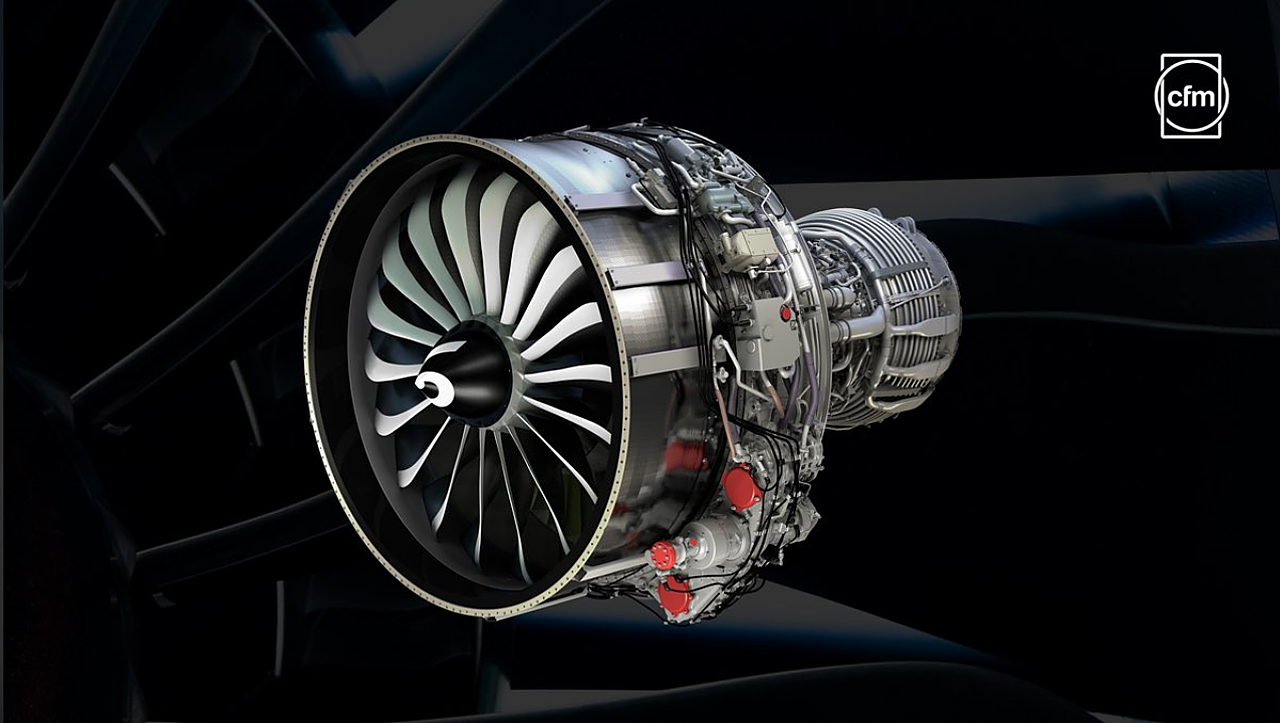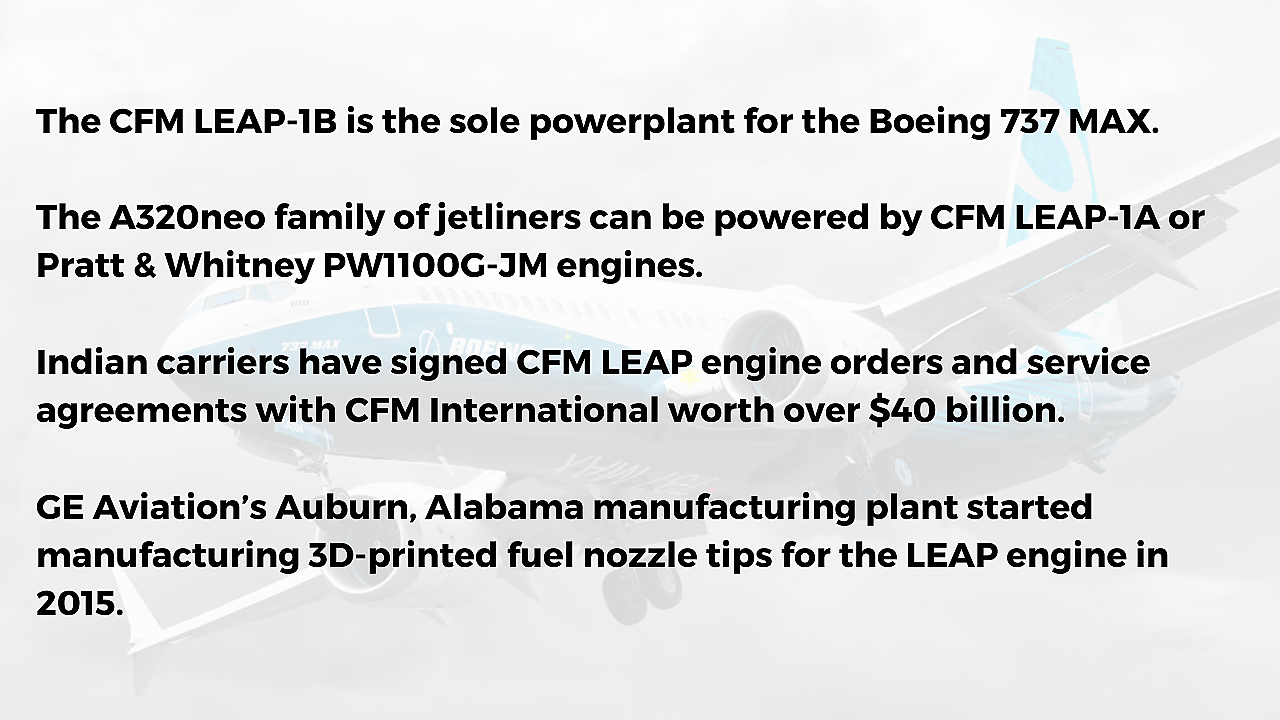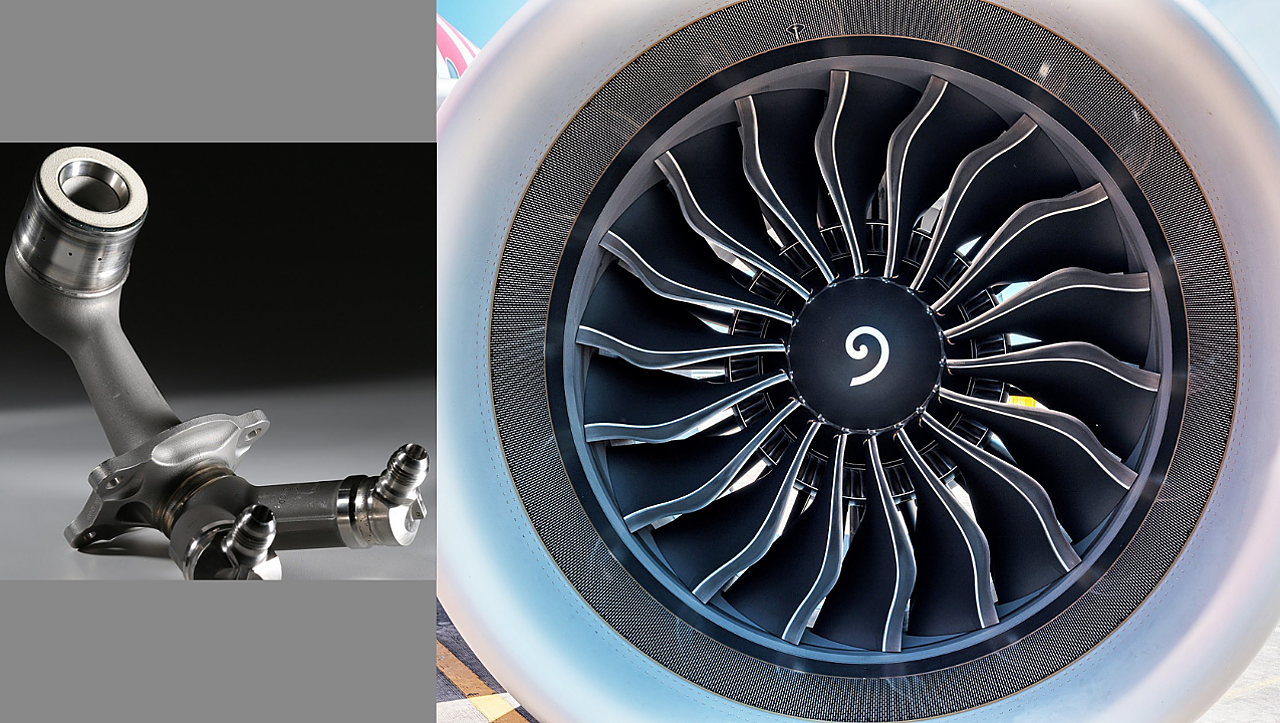
India’s newest airline Akasa Air recently placed orders with CFM International for LEAP-1B aero engines to power its newly ordered fleet of 72 Boeing 737 MAX jetliners, marking another win for the engine manufacturer in the highly competitive commercial aero engine market.
The LEAP-1B engine is the sole powerplant for the B737 MAX and entered service on the type in 2017. Airbus, however, offers its A320neo (new engine option) family of jetliners with the choice of either CFM LEAP-1A or Pratt & Whitney (P&W) PW1100G-JM engines.
Akasa Air’s order for 144 engines adds to CFM International’s LEAP family orders placed by SpiceJet, IndiGo, Air India, Air Asia India and Vistara.
Previous generation single-aisle jetliners operated by Indian carriers such as the Boeing 737NG are powered by CFM56-7B engines, whereas the A320ceo (current engine option) family of jetliners are powered by CFM56-5B or International Aero Engine V2500 engines. Total LEAP engine orders and commitments now exceed 16,300 machines, and CFM has delivered over 3,000 LEAP engines to 143 different customers and operators.
Growing Orderbook
Akasa Air’s CFM LEAP-1Border is valued at nearly $ 4.5 billion at list prices; however, airlines typically secure discounts on such orders. The Akasa Air contract includes 144 new LEAP-1B engines to power 72 B737 MAX jetliners, in addition to spare engines. The Ultra Low-Cost Carrier (ULCC) has also entered into a long-term engine services agreement with a comprehensive maintenance programme that will include real-time engine monitoring and predictive maintenance planning. The LEAP-1B engine offers Boeing 737 MAX operators enhanced performance in fuel consumption and 15% lower CO2, 50% lower NOx emissions, and reduced noise levels.

SpiceJet is presently the sole Indian B737 MAX operator, and the LCC placed LEAP-1B engines orders with CFM International worth $ 12.5 billion and $1.1 billion in March 2018 and March 2014, respectively. These engines were to power 197 B737 MAX aircraft that it had on order. SpiceJet’s March 2018 order also included spare engines to support the fleet and a 10-year Rate per Flight Hour (RPFH) agreement with CFM Services covering all of the airline’s LEAP-1B engines. A part of CFM’s portfolio of flexible aftermarket support offerings, RPFH agreements guarantee maintenance costs for LEAP-1B engines on a pay-by-the-hour basis.
IndiGo is India’s largest customer for LEAP-1A engines and has placed orders with CFM International for 1,180 machines. The airline initially inducted its A320neos with PW1100G-JM engines; however, a trying period of engine-related troubles with the revolutionary Geared Turbofan (GTF) engines led to a change of heart within the airline. Earlier in May, IndiGo ordered 620 LEAP-1A engines to power 310 new A320neo, A321neo, and A321XLR aircraft. IndiGo will start taking deliveries from 2023 onwards. It had placed a $20 billion order with CFM International in June 2019 for 560 LEAP-1A engines to power 280 new A320neo and A321neo aircraft, along with spare engines and overhaul support agreements. IndiGo is moving to replace all its A320ceos with A320neo family jetliners by the end of 2022.
Wadia Group run Go First (formerly GoAir), another A320neo operator, has chosen to continue with P&W GTF engines, unlike IndiGo. In November 2019, Go First selected PW1100G-JM engines for its order of 72 A320neo family aircraft along with a long-term ‘EngineWise’ comprehensive services agreement. Go First’s fleet comprises 50 A320neo and seven A320ceo (as of Sept 30, 2021). The airline has 94 A320neos remaining on order and plans to take delivery of two more A320neos before the end of the year and ten aircraft each in 2022 and 2023, respectively. The first Indian airline to introduce the LEAP engine into service was Air India, which started commercial operations with a LEAP-1A-powered A320neo aircraft in April 2017.
Leap Of Faith
CFM International is a 50-50 joint venture between General Electric (GE) and Safran Aircraft and is one of the most successful partnerships in the aviation industry. The LEAP-X engine programme was officially launched in July 2008. Chinese aerospace firm Commercial Aircraft Corporation of China (COMAC) was the first to opt for the LEAP engine, choosing it as the powerplant for its new 150-passenger C919 in December 2009. Airbus opted for the LEAP-1A engine in 2010, and Boeing decided to proceed with the LEAP-1B in 2011. The LEAP-1A engine entered commercial service with the A320neo in 2016, followed by the LEAP-1B engine entering service on the B737 MAX in 2017.

The LEAP engine family has successfully introduced cutting-edge technology while maintaining the high reliability sought after by airline operators. Jet engines operate more efficiently at higher temperatures, and as a result, CFM introduced the use of engine parts made from advanced, lighter-weight, more heat-resistant materials, including ceramic matrix composites (CMC). These materials can handle extreme temperatures approaching 2,400 degrees Fahrenheit in the core of the engine.
Safran Aircraft Engines developed and patented the use of a 3D woven Resin Transfer Moulding (RTM) carbon fibre composite that made it possible to produce lighter, stronger and durable fan blades. The low-pressure turbine blades are more resistant to high temperatures, as they are machined from an innovative titanium-aluminide alloy that is also lighter in weight. The engine’s low-pressure turbine rings and airfoils are made of CMC materials, while 3D printed fuel injectors deliver weight savings of approximately 25%. Each LEAP engine has nearly 20 such fuel nozzles.
The shift to additive manufacturing reduced the number of parts in a single fuel nozzle tip to just one against 20 pieces that needed to be welded together. GE Aviation manufactures the 3D-printed fuel nozzle tips for the LEAP engine at its Alabama facility, which is the aerospace industry’s first site for mass production using the additive manufacturing process.